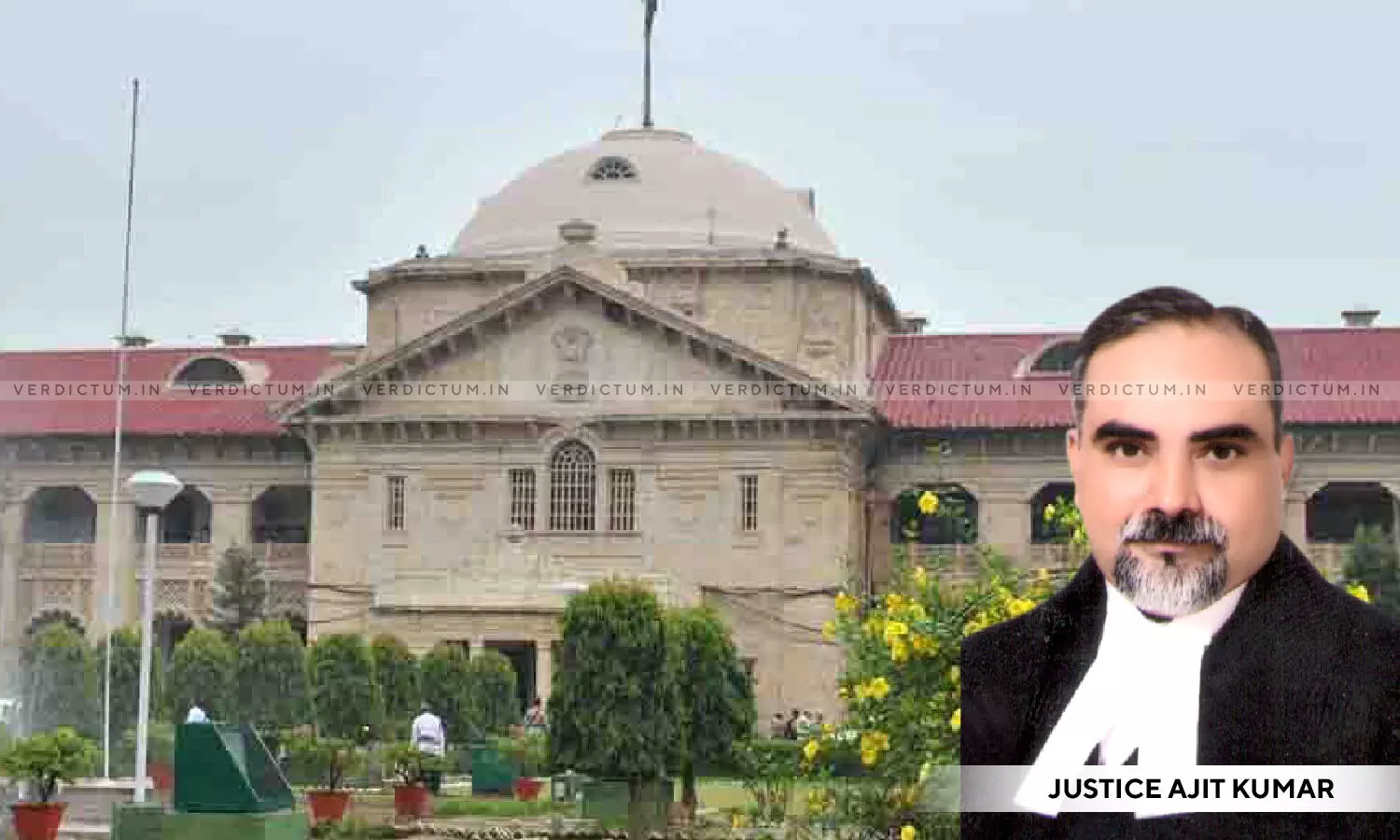
Both Final & Interlocutory Order Passed By DRT U/S 17 SARFAESI Act Appealable: Allahabad HC
 |
|The Allahabad High Court clarified that both the final and interlocutory orders passed by the Debt Recovery Tribunal under Section 17 of the SARFAESI Act (the Act) are appealable under Section 18 of the Act.
The Bench dismissed a petition filed under Article 226 of the Constitution wherein the petitioners sought to challenge the order passed by the Debt Recovery Tribunal (DRT) on a miscellaneous application. The Court reiterated that the High Court should refrain from entertaining petitions invoking powers under Article 226 of the Constitution when a special Act like the Recovery of Debts and Bankruptcy Act, 1993 Act and the Securitization and Reconstruction of Financial Assets and Enforcement of Security Interest Act, 2002 (the Act) prescribed for statutory remedies.
A Single Bench of Justice Ajit Kumar observed, “From bare reading of the aforesaid provisions it is true that it comes out very clearly that any order made by Debt Recovery Tribunal is appealable but of course passed under Section 17 of SARFAESI Act, 2002. The section does not prescribe or put a rider that order should be a final order…Thus, every order would include even interlocutory order rejecting a miscellaneous application. Hence the order passed by the Debt Recovery Tribunal upon the miscellaneous application filed by the petitioner impugned herein this petition is amenable to the appellate forum prescribed under Section 18 of the SARFAESI Act, 2002.”
Advocate Ashok Pandey represented the petitioners, while Advocate Alok Rai appeared for the respondents.
The respondent bank raised a preliminary objection stating that the petitioner had an alternative efficacious remedy to prefer an appeal before the Debt Recovery Appellate Tribunal under Section 18 of the Act.
The bank argued that the High Court should not interfere by invoking extraordinary jurisdiction under Article 226 of the Constitution referred to the Supreme Court judgment in the case of PHR Invent Educational Society v. UCO Bank which held that High Courts should refrain from intervening in matters where statutory remedies were provided under the Act.
The petitioners contended that Section 18 of the Act as amended by Act No. 30 of 2004, restricted appeals to orders passed under Section 17. They argued that an order regarding court fees on a miscellaneous application did not fall under Section 17.
The Court examined the provisions of Section 17 and Section 18 of the Act alongside the Security Interest (Enforcement) Rules, 2002. It was observed that any order, including interlocutory orders, passed by the DRT under Section 17 was appealable under Section 18.
“If the borrower makes an application that earlier securitization application was moved but since the bank withdrew its proceedings to recover the secured debts at that stage and subsequently issued a fresh notice and hence the court fee already paid should be taken into consideration, would amount to a miscellaneous application, the Bench clarified.
Consequently, the Court held that “for an application to be a competent application under Section 17 of SARFAESI Act, 2002 and an appeal to be competent under Section 18 of SARFAESI Act, 2002.”
Accordingly, the High Court dismissed the petition.
Cause Title: Kasturi Devi Sheetalaya Pvt Ltd. & Anr. v. The Presiding Officer Debt Recovery Tribunal & Anr. (Neutral Citation: 2024:AHC:96998)
Appearance:
Petitioner: Advocates Ashok Pandey and Srestha Pandey
Respondents: Advocates Alok Rai and Eshita Sand